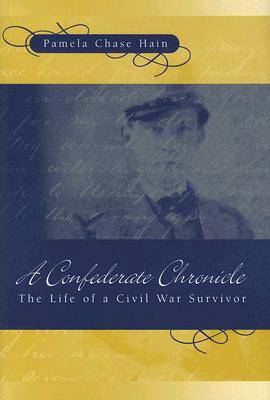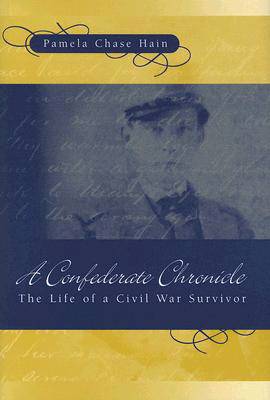
- Afhalen na 1 uur in een winkel met voorraad
- Gratis thuislevering in België vanaf € 30
- Ruim aanbod met 7 miljoen producten
- Afhalen na 1 uur in een winkel met voorraad
- Gratis thuislevering in België vanaf € 30
- Ruim aanbod met 7 miljoen producten
Zoeken
€ 82,45
+ 164 punten
Omschrijving
A Confederate Chronicle presents the remarkable life of Thomas L. Wragg, who served in both the Confederate army and navy and endured incarceration as a prisoner of war. After the war, he undertook a series of jobs, eventually becoming a physician. In 1889, he died tragically at the hands of a man who mistakenly thought he was defending his family's honor. Pamela Chase Hain uses Wragg's letters home to his family, friends, and fiancée, as well as his naval notebook and newspaper articles, to give readers direct insight into his life and the lives of those around him. The son of a respected Savannah physician, Wragg was born into a life of wealth and privilege. A nonconscripted soldier, he left home at eighteen to join the front lines in Virginia. From there, he sent letters home describing the maneuverings of General Joseph E. Johnston's army in and around Harpers Ferry and Winchester, culminating with the Battle of Bull Run. In the fall of 1862, Wragg joined the Confederate Navy and trained on the ironclad CSS Georgia before transferring to the CSS Atlanta. Hain uses the notebook that he kept during his training in ordnance and gunnery to provide a rare glimpse into the naval and artillery practices at the time. This notebook also provides evidence of a fledgling Confederate naval "school" prior to the one established on the James River on the CSS Patrick Henry. The crew of the unfortunate Atlanta was captured on the ship's maiden voyage, and evidence in the Wragg family papers suggests the capture was not the result of bad luck, as has been claimed. Wragg and the other officers were sent to Fort Warren Prison in Boston Harbor for fifteen months. Wragg's POW letters reveal the isolation and sense of abandonment the prisoners felt as they waited in hopes of an exchange. The correspondence between Wragg and his fiancée, Josie, after the war illustrates not only the mores of nineteenth-century courtship but also the difficulty of adjustment that many Confederate war veterans faced. Sadly, Wragg's life was cut short after he became a successful doctor in Quincy, Florida. Cover-up and intrigue by influential citizens prevented Wragg's wife from bringing the murderer to justice. A Confederate Chronicle offers an unprecedented look at how the Civil War affected the gentry class of the South. It gives readers a personal view into one man's struggle with the chaos of life during and after the war, as well as into the struggles of the general society.
Specificaties
Betrokkenen
- Auteur(s):
- Uitgeverij:
Inhoud
- Aantal bladzijden:
- 296
- Taal:
- Engels
- Reeks:
Eigenschappen
- Productcode (EAN):
- 9780826215994
- Verschijningsdatum:
- 1/11/2005
- Uitvoering:
- Hardcover
- Formaat:
- Genaaid
- Afmetingen:
- 152 mm x 229 mm
- Gewicht:
- 562 g

Alleen bij Standaard Boekhandel
+ 164 punten op je klantenkaart van Standaard Boekhandel
Beoordelingen
We publiceren alleen reviews die voldoen aan de voorwaarden voor reviews. Bekijk onze voorwaarden voor reviews.











